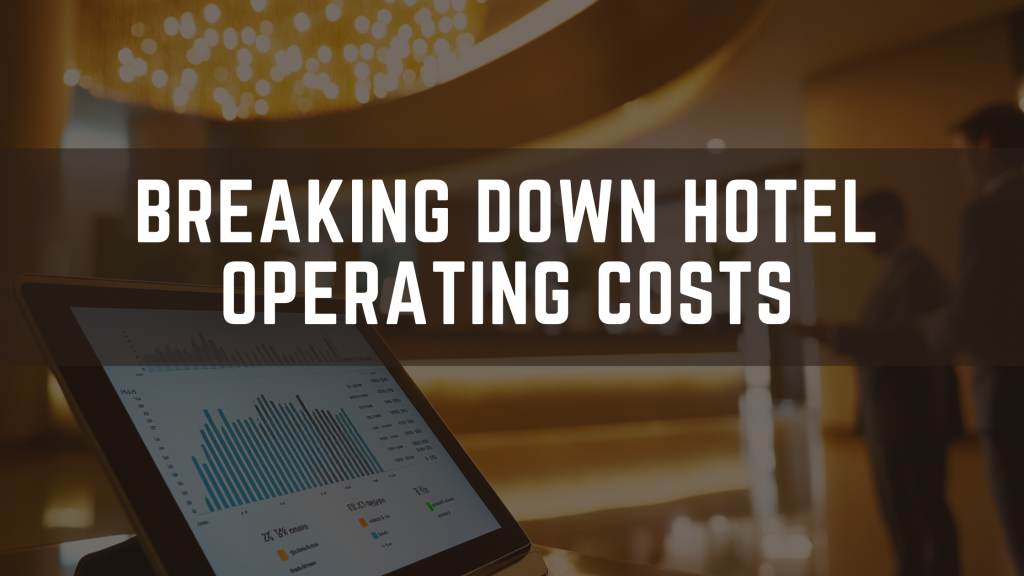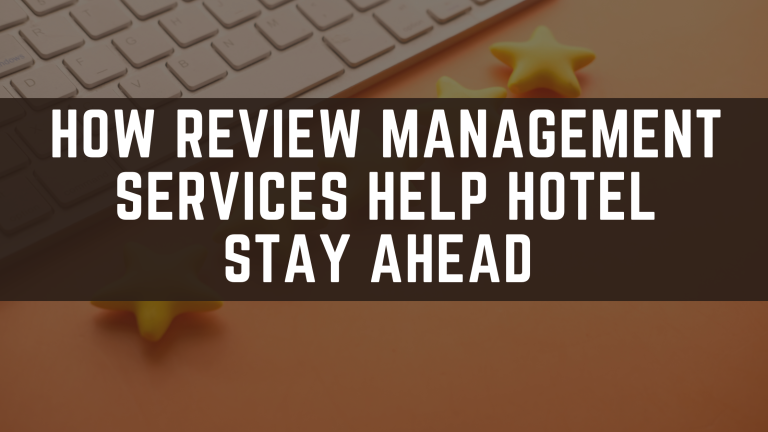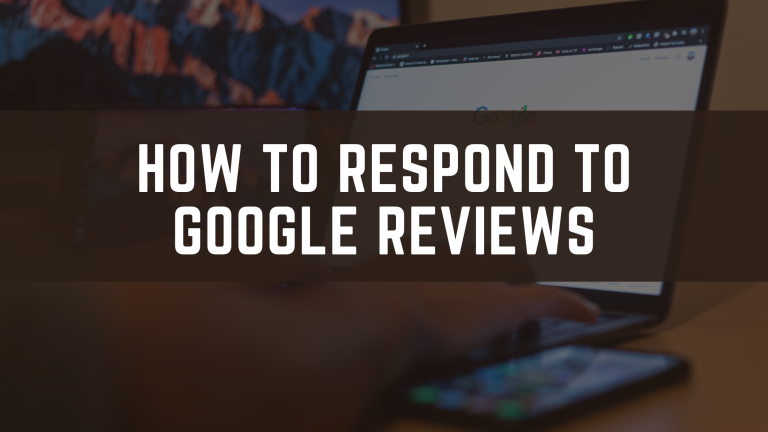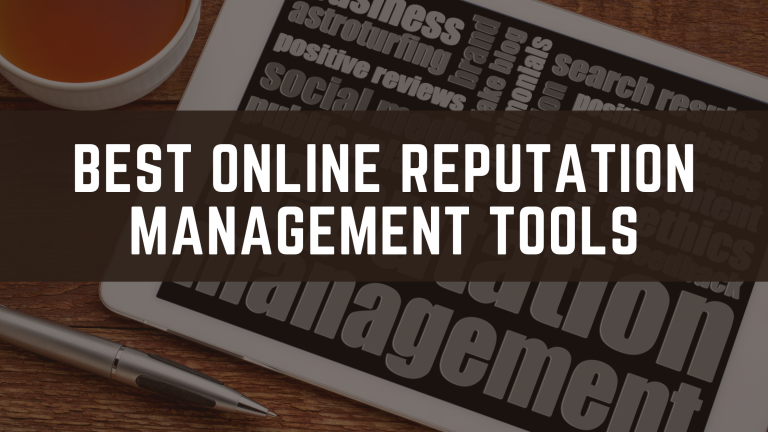Effectively managing hotel operating costs is essential for financial success and maintaining a competitive edge in the hospitality industry. From fixed expenses like mortgage payments and insurance to variable costs such as utilities and housekeeping, every aspect of hotel operations requires careful attention. Optimizing these costs allows hoteliers to maximize profitability while delivering outstanding guest experiences.
This guide delves into the key components of hotel operating costs, strategies for managing them, and how leveraging data and technology can lead to a more efficient and profitable operation. What Are Hotel Operating Costs?
Hotel operating costs encompass all expenses required to run a hotel and deliver services to guests. These costs fall into three main categories:
- Fixed Costs: Expenses that remain constant regardless of occupancy, such as mortgage, property taxes, and insurance.
- Variable Costs: Expenses that fluctuate with occupancy levels, like utilities, food and beverage, and housekeeping supplies.
- Semi-Variable Costs: Costs that have both fixed and variable components, such as staff wages with base salaries and overtime pay.
Breaking these down helps hotel managers understand where resources are being spent and identify areas for potential savings.
Key Categories of Hotel Operating Costs
1. Labor Costs
Labor typically represents the largest operational expense for hotels. These costs include wages, benefits, and training for staff across various departments such as housekeeping, front desk, and food and beverage services.
Strategies to Optimize Labor Costs:
- Use workforce management software for efficient scheduling.
- Cross-train employees to perform multiple roles and reduce overstaffing.
- Implement flexible scheduling during peak and off-peak seasons to control labor expenditures.
2. Utilities
Electricity, water, heating, and cooling are essential for maintaining guest comfort but can quickly escalate if not managed effectively.
Ways to Reduce Utility Costs:
- Conduct regular utility audits to identify inefficiencies.
- Encourage eco-friendly practices like towel and linen reuse programs.
3. Food and Beverage
For hotels with dining services, food and beverage expenses are a significant part of the operating budget.
Cost-Reduction Tips:
- Streamline menus based on seasonal ingredients to cut costs.
- Use inventory management systems to minimize food waste.
- Partner with local suppliers to negotiate better terms and reduce transportation costs.
4. Property Maintenance
Keeping the property in excellent condition is crucial for guest satisfaction and long-term value.
Optimizing Maintenance Costs:
- Implement preventive maintenance programs to avoid costly repairs.
- Use predictive maintenance tools to identify and resolve issues early.
- Negotiate favorable rates with contractors for recurring services.
5. Marketing and Distribution
Attracting guests requires effective marketing, but the associated costs—especially commissions paid to Online Travel Agencies (OTAs)—can significantly impact profitability.
Maximizing ROI with Reputation Management:
- Partner with The Reputation Lab to enhance your online presence. By managing guest reviews on platforms like Google and TripAdvisor, you can improve trust and drive direct bookings, reducing dependence on OTAs.
- Invest in digital marketing strategies such as SEO and social media to increase direct bookings.
- Use loyalty programs to incentivize repeat customers and foster long-term relationships.
Leveraging KPIs for Cost Management
Key Performance Indicators (KPIs) provide valuable insights into hotel performance, enabling better cost management. Here are the most important KPIs for monitoring operational efficiency:
- Cost Per Occupied Room (CPOR): Tracks the average cost incurred for each occupied room, offering insights into operational efficiency.
- Cost Per Available Room (CostPAR): Measures the cost associated with all available rooms, regardless of occupancy.
- Gross Operating Profit Per Available Room (GOPPAR): Evaluates profitability across all revenue streams, factoring in operating costs.
- Labor Cost Per Available Room (LPAR): Assesses labor expenses in relation to available rooms, identifying inefficiencies in staffing.
- Guest Acquisition Cost (GAC): Calculates the expense of attracting new guests, helping optimize marketing efforts for maximum ROI.
Strategies for Reducing Hotel Operating Costs
Smart Scheduling
- Analyze occupancy trends to align staffing with demand.
- Use data-driven tools to forecast busy and slow periods.
- Opt for temporary staffing during peak seasons to control long-term labor costs.
Energy-Saving Initiatives
- Upgrade to energy-efficient HVAC systems and appliances.
- Use motion-activated lights and smart temperature controls in unoccupied rooms.
- Conduct regular maintenance to ensure systems run at peak efficiency.
Revenue Management
- Implement dynamic pricing strategies that adjust room rates based on demand.
- Offer exclusive promotions and perks for direct bookings to bypass OTA commissions.
Technology Investments
- Use advanced Property Management Systems (PMS) for seamless operations and better cost tracking.
- Leverage automated booking systems to streamline the reservation process and reduce administrative tasks.
- Enhance the guest experience with platforms that collect feedback and offer personalized services.
Managing Fixed and Variable Costs
Fixed Costs
- Rent: Negotiate long-term leases for stability and potential discounts.
- Insurance: Review coverage regularly and compare quotes to ensure cost-effectiveness.
- Utilities: Explore renewable energy sources and energy-efficient practices to lower costs.
Variable Costs
- Utilities: Monitor usage closely and install smart systems to reduce waste.
- Food and Beverage: Reduce waste through better inventory management and portion control.
- Housekeeping Supplies: Buy in bulk to secure volume discounts and use sustainable products to minimize environmental impact.
The Role of Online Presence in Operating Costs
Online visibility significantly influences operational costs and revenue generation. While OTAs help with exposure, their high commission fees can strain profitability. To reduce reliance on OTAs:
- Offer exclusive discounts for direct bookings through your website.
- Invest in digital marketing strategies like email campaigns, social media advertising, and content marketing.
- Partner with The Reputation Lab to manage reviews and boost your reputation, leading to higher trust and more direct bookings.
Building a Sustainable and Profitable Future
Cost management is the backbone of a successful hotel operation. By balancing fixed and variable expenses, leveraging KPIs, and adopting innovative strategies, hoteliers can enhance efficiency and profitability without compromising guest satisfaction.
With the right approach to managing costs and a focus on reputation, your hotel can stay competitive and thrive in an ever-changing industry. If you are interested in learning how a reputation management strategy can benefit your business, we invite you to email us via our secure contact form to set up a no-pressure consultation or call us at 855-979-6800




